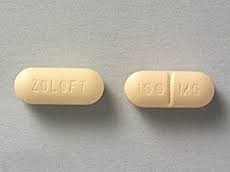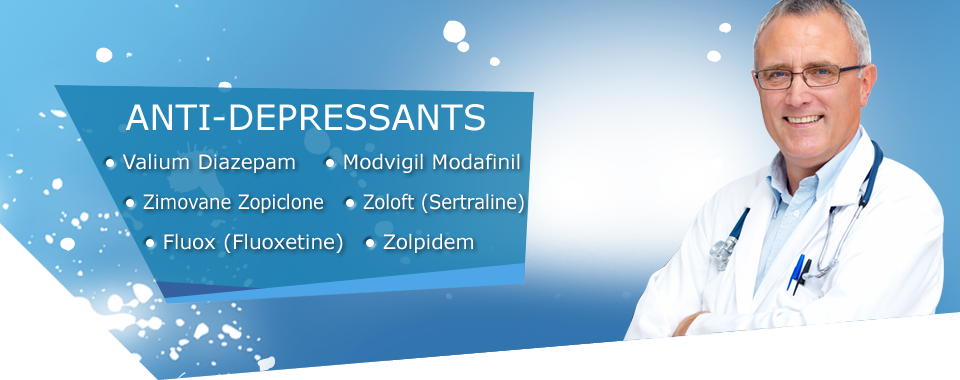
Zoloft (Sertraline) 50/100 mg is used for treating depression or obsessive-compulsive disorder (OCD). It belongs to a group of antidepressant medications called selective serotonin reuptake inhibitors (SSRIs). This medication is often used to treat depression experienced by adults and teenagers. This medication may also be used to treat adults and teenagers who experience panic attacks, posttraumatic stress, social anxiety, premenstrual dysphoric issues, and obsessive compulsive thoughts and behaviors. Zoloft may help to control the emotions, thoughts, and actions that sometimes accompany these mental health conditions, but it will not cure the conditions.
 How should I take this medication?
How should I take this medication?
Zoloft is supplied for oral administration as scored tablets containing sertraline hydrochloride equivalent to 25, 50 and 100 mg of sertraline. You may need to take this medication for several weeks before you begin to feel the effects of this drug. It is important to continue taking this drug as prescribed by your healthcare advisor, even after you begin to feel better.
What should I do if I miss a dose?
As soon as you remember it, take the dose you missed. If it will soon be time for your next regular dose, skip the missed dose altogether. You should not take a double dose to make up for missed medication. Taking two doses over a short period of time may lead to an overdose.
Who should not take this medication?
People who are allergic to sertraline should avoid this medication. Allergic reactions may include difficulty breathing, rashes or hives, and swelling of the lips, tongue, eyes or face. Elderly people should not take this medication unless it is being used to treat obsessive compulsive behavior. Children should not be given this drug.
How Should I Store This Medication?
Zoloft should be tightly sealed in its original container when not in use. Store the container at room temperature. Avoid locations that are exposed to excess heat or moisture (such as a bathroom or kitchen).
Possible Side Effects of Zoloft
Side effects from Zoloft will be different for each person. Some people who take it experience no side effects at all. Serious side effects from this medication may include: unclear vision; seizures; rapid or irregular heartbeat; difficulty breathing; swelling of your face, lips, tongue, or throat.
Less serious side effects of taking this drug can include: drowsiness; disorientation; dry mouth; changes in appetite or weight; restlessness; stomach issues, gas, vomiting, diarrhea, or constipation; low sodium levels in blood; headache; pain or tingling in extremities; noticeable differences in sex drive or ability; unwarranted tremors or shaking.
How to Safely Withdraw from Zoloft
People who are taking Zoloft should not stop taking the drug all at once. Formulate a plan with your doctor before reducing or discontinuing this medication altogether. You can reduce the symptoms you feel during withdrawal by slowly reducing this medication in your system. Possible symptoms of withdrawal may include: insomnia; abnormal irritability; an increase in general anxiety; headache; confusion; fatigue.
Speak with your doctor about any negative symptoms that you experience when you stop using this medication.






